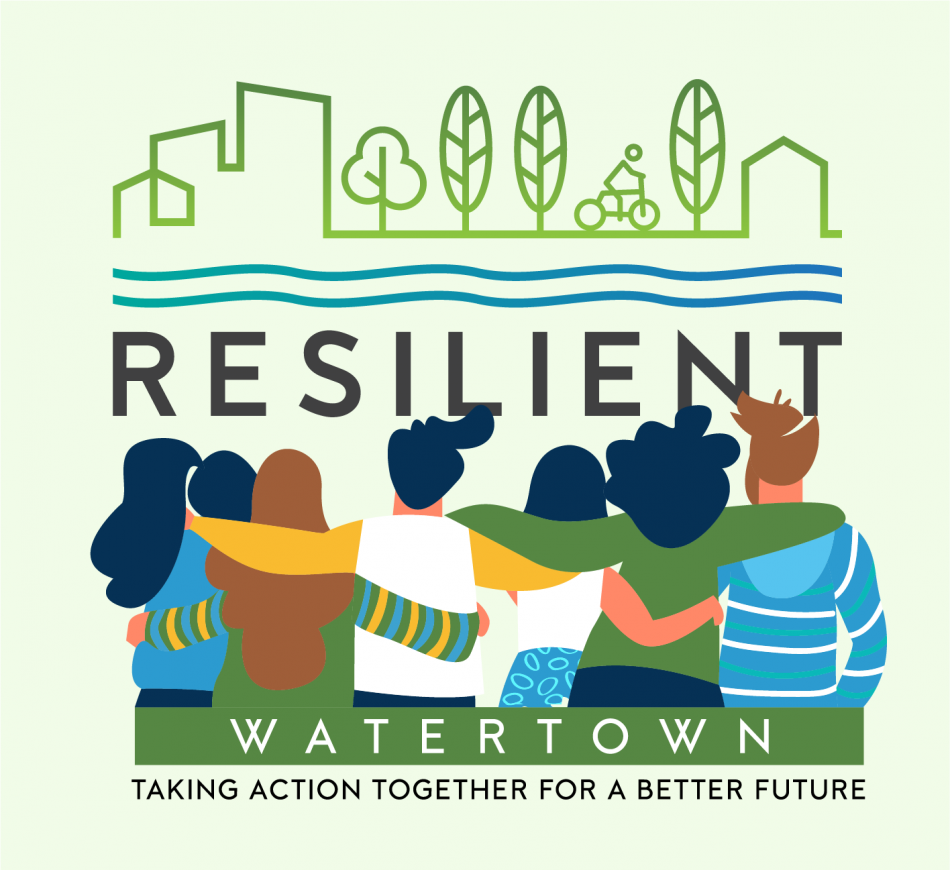Community engagement has been and will continue to be a key component of Resilient Watertown’s climate action plan process. We have already conducted a series of innovative engagement activities in order to hear from residents about challenges, concerns, priorities, and perceptions as they relate to climate change. To date we have completed:
- 4 interviews with key Watertown stakeholders
- 1 focus group
- 1 public listening session
- 2 MVP stakeholder workshops
- 1 survey with over 350 responses
General Engagement
We have interviewed diverse stakeholders, including business owners, youth, families, and professionals. We have also worked with municipal stakeholder groups such as public housing, fire, police, regional entities, and advocacy groups to ensure we gain maximum insight into the community’s priorities on climate action. While some of our efforts were hampered by the emergence of the Covid-19 pandemic last spring, we still managed to have some great conversations with people in virtual settings. Moving forward, we plan to build on our efforts and continue to reach out to different groups and populations in Watertown, whether in person or virtually, as health conditions allow.
Our conversations revealed several key opportunities and challenges facing Watertown as we seek to become more resilient to climate change. Opportunities identified include:
- Creating a more equitable transportation system
- Implementing large infrastructure improvement projects
- Meaningful collaboration between Town entities and local organizations
- Establishing a culture of enhanced communication and outreach
Some challenges were also identified:
- High cost of living and doing business in Watertown
- Limits to Town staff capacity
- The need to create visionary goals while also being realistic and achievable
Survey
One particularly successful outreach method was our survey, which garnered over 350 responses, even with its rollout coinciding with the start of the pandemic. The full results from the survey can be viewed here. A few key insights are below:
- Respondents’ top three concerns were infrastructure, climate hazards, and transportation.
- There was strong support for the use of green infrastructure practices to help with flood protection and improved water quality.
- The top three priorities for Watertown to spend funds on resilience were infrastructure upgrades, expansion of public transit, and tree canopy protection.
While 350 is a small sample size of Watertown’s total population and we recognize the demographics of respondents don’t quite capture the full diversity of Watertown residents, the results echoed a lot of the concerns and priorities we heard about through our other community engagement activities.
Youth
We heard many voices through these various engagement events, including some of the youth of Watertown, in the form of a focus group with members of the Watertown High School chapter of the Sunrise Movement. Some key takeaways are below:
- What concerns you about climate change?
- Mass extinction of animals and how that is affecting the whole ecosystem
- Boston going underwater due to rising sea levels
- People already being affected by climate change around the world and how they are unable to move or afford to live elsewhere
- What might your role be in making your school or Watertown more resilient to the impacts of climate change?
- In-school action and convincing people to take that first step to get involved.
- Instagram and Facebook posts can help keep action present in people's minds and this generation knows how to use these tools effectively.
Future Engagement
Community engagement will continue to be critical in creating a Resilient Watertown. Make sure to watch out for more surveys in the future and look out for our sustainability toolkits which will have tips and resources to help you become more resilient!

